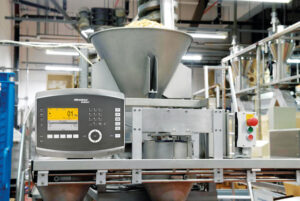
This article will focus on the statistical process control of some industrial production processes.
Statistical process control aims to help produce and ensure consistent product quality. The early approaches to this were conducted in 1930 by Walter A Shewhart. Today, statistical process control is an essential component of many quality management systems and accompanies core processes, not only of production but services too. Shewhart’s ideas can be found today in standard operating procedures and still shape big companies’ overall quality improvement systems, like the popular Six Sigma concept. This article will focus on the statistical process control of some industrial production processes.
Product Quality is Often the Sum of Various Small Details
Statistical process control, or SPC, or industrial production processes, is ongoing monitoring in support of some consistent product quality. This is possible because of continued recordings of all key figures relevant to product quality for repeating and complex processes. Statistical process control provides simple data for identifying weak points, or in other words, what is required for continuous improvement of their respective production processes. Monitoring quantitate and qualitative features of a product or a process is possible. A calibration could occur if deviations outside the defined target, sample, or trend are identified. A production process controlled with SPC will therefore allow for the following:
- Consistent product quality thanks to ongoing processes as a part of defined test routines
- Targeted planning of the tolerance specifications and, consequently, a significant increase in efficiency
- The documentation of product quality as evidence of actual conformity with the regulations
- Early intervention into the process in the event of some initial indications of a potential error
But what is statistical process control not capable of? This includes, in particular, the actual assessment of the product itself or even the improvement of the product quality. Other tools have to be used to help achieve this.
The Two Testing Methods with the Aim of Quality Assurance
The main aim of any quality assurance system is a product with as few defects as humanly possible. There are two different ways to do this.
- Test samples were taken at the very end of the production line.
- Measurement, regulation, and comparison during the process.
SPC is an ideal means for reducing costs since it prevents the loss incurred by insufficient quality.
Weight is a trusted measurement that can help identify quality issues. It can be used via load cells that measure weight in real-time while products are on the production line or bench scales that can do spot checks throughout the production process. Weight is a trusted measurement for ensuring the proper packaging of products.
CONTACT THE SCALE PEOPLE FOR WEIGHING EQUIPMENT AND CALIBRATION SERVICES!
Since 1956, The Scale People have earned a reputation as the best service provider for calibrating and repairing weighing equipment in the mid-Atlantic area. Our sales team can help you to find the best weighing equipment for your application. We currently have offices in Columbia, MD, and Newport News, VA, but we offer our services nationwide. Over the years, we have built many satisfied clients from various industries, including pharmaceutical, food and beverage, and government manufacturing. We are a fully ISO/IEC 17025:2017 accredited service company offering calibration for balances, scales, dynamometers, force measurements, test weights, pipettes, and more. All our services have a 100% satisfaction guarantee. We’re only a phone call away at +1 (800) 451-9593. Follow us on Facebook, Twitter, and LinkedIn to learn more about our work.
